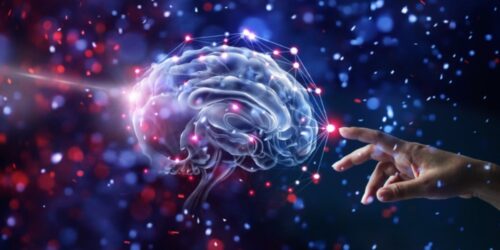Neurological Pathways to Addiction

Recent neuroscience research reveals how addiction alters your brain’s structure and function. These changes impact areas responsible for reward, stress, and self-control. Understanding this can help you grasp why overcoming addiction is more complex than just a matter of willpower. Addiction reprograms the brain’s reward system. Substances or addictive behaviors overstimulate this system, leading to a rewiring of the brain’s response to pleasure. This is why you might find it increasingly difficult to find joy in everyday activities once addiction sets in.
Stress Response and Addiction
The brain’s response to stress also changes with addiction. The heightened stress levels can make relapse more likely, even after significant periods of recovery. Managing stress effectively is, therefore, a key component in treating addiction.
Impaired Decision-Making and Control
Areas of the brain involved in decision-making and impulse control are significantly affected. This might explain why, despite negative consequences, continuing the addictive behavior seems unavoidable. Recognizing this impairment is crucial for developing effective treatment strategies.
Neuroplasticity and Recovery
The concept of neuroplasticity offers hope. Your brain has the ability to adapt and rewire itself, even after the damage caused by addiction. Tailored rehabilitation programs can leverage this neuroplasticity for recovery.
Emerging Controversies in Neuroscience of Addiction
Debates continue about the extent to which addiction is a ‘brain disease’ versus a complex interaction of social, environmental, and biological factors. Understanding all perspectives can broaden your approach to addiction treatment and recovery.
Our exploration of “Unlocking the Brain: The Neurological Underpinnings of Addiction” reveals that addiction revolves around the intricate workings of the brain’s mesolimbic dopamine pathway. This critical circuit, often referred to as the reward circuit, initiates in the ventral tegmental area (VTA) located above the brain stem. This revelation underscores the centrality of the mesolimbic dopamine pathway in the compelling forces behind addiction.
Delving deeper, we uncover the neurological pathway steering the compulsive drive for substances—the striato-thalamo-orbitofrontal circuit. This circuit intricately intertwines with various prefrontal and limbic regions, including the anterior cingulate, insula, dorsolateral prefrontal cortex (DLPFC), and amygdala. The interplay within this circuit sheds light on the complex mechanisms that drive individuals toward compulsive substance use.
At the core of the addiction narrative is the neurobiological theory, a concept encapsulated in the relentless cycle of addiction. Prolonged exposure to substances induces significant alterations in the brain’s response to reward, stress, and executive functions. These changes, at times irreversible, pose profound challenges, impacting the connections between neurotransmitter systems and different brain regions.
Viewing addiction through a neurological lens reveals it as a chronic disorder entrenched in the limbic cortico-striatal neural networks of the brain. Chronic drug exposure prompts a progressive neurobiological adaptation, fostering a loss of control over drug-seeking behavior. This insight highlights the depth of the neurological underpinnings that contribute to the persistent nature of addiction.
The Ethics of Brain Manipulation in Addiction Treatment
The prospect of directly manipulating brain functions to treat addiction raises ethical concerns. Techniques like deep brain stimulation, which show promise in altering brain activity related to addiction, also pose questions about autonomy and consent. Critics argue that such interventions could lead to manipulation of behavior beyond addiction treatment, while proponents emphasize the potential for life-saving treatment.
The Role of Genetics in Addiction Vulnerability
Exploring the genetic factors in addiction reveals a contentious debate. Some researchers propose that certain genetic markers may predispose individuals to addiction, suggesting a need for personalized treatment approaches. However, this raises questions about genetic determinism and the risk of stigmatizing individuals based on their genetic makeup.
Addiction, Mental Health, and Brain Chemistry
The interplay between addiction and mental health disorders is a complex and debatable topic. Some studies suggest that imbalances in brain chemistry, often seen in mental health disorders, may predispose individuals to addictive behaviors. This dual-diagnosis approach can lead to debates about the primary focus of treatment – the addiction or the underlying mental health issue.
Artificial Intelligence in Predicting and Treating Addiction
The use of AI in predicting susceptibility to addiction and tailoring treatment plans is gaining attention. AI algorithms can analyze vast amounts of data to identify potential risk factors and effective treatment modalities. However, this approach raises concerns about privacy, data security, and the potential for AI to make errors in judgment or perpetuate biases.
The Societal Implications of Addiction as a Brain Disorder
Defining addiction as a brain disorder carries significant societal implications. It can lead to a shift in public perception, from viewing addiction as a moral failing to understanding it as a medical condition. This change could influence public policy, healthcare funding, and social stigma, but also raises concerns about oversimplifying the multifaceted nature of addiction.
In exploring the neurological underpinnings of addiction, we’ve delved into the profound ways addiction reconfigures the brain. This journey into the brain’s labyrinth reveals crucial insights:
- Rewiring of Reward and Stress Systems: Addiction hijacks the brain’s reward pathways, skewing the perception of pleasure and satisfaction. Concurrently, it alters the brain’s stress response, often exacerbating the addictive cycle.
- Impaired Decision-Making Abilities: The impact on areas governing decision-making and impulse control highlights why overcoming addiction is not merely about willpower but involves a complex interplay of neurobiological factors.
- Hope Through Neuroplasticity: Despite these challenges, the brain’s ability to rewire itself – neuroplasticity – offers a beacon of hope. Tailored treatments can leverage this adaptability, aiding in effective recovery strategies.
- Ethical Dilemmas and Genetic Factors: The discussions around brain manipulation techniques and the role of genetics in addiction susceptibility present both promising avenues and ethical dilemmas, reflecting the multifaceted nature of addiction treatment.
- Intersections with Mental Health and AI: The relationship between addiction and mental health, alongside emerging AI applications in predicting and treating addiction, underscores the evolving landscape of addiction treatment, though not without challenges in implementation and ethics.
- Societal Impact of Viewing Addiction as a Brain Disorder: Redefining addiction as a brain disorder could shift societal perspectives, influencing policy and reducing stigma. However, it’s essential to balance this view with an understanding of addiction’s multifaceted nature.
By unlocking the brain’s role in addiction, we gain valuable insights into both the profound challenges and potential pathways for overcoming addiction. This knowledge is pivotal in developing more nuanced, effective, and compassionate approaches to addiction treatment, resonating with the initial quest to understand addiction beyond superficial layers.






